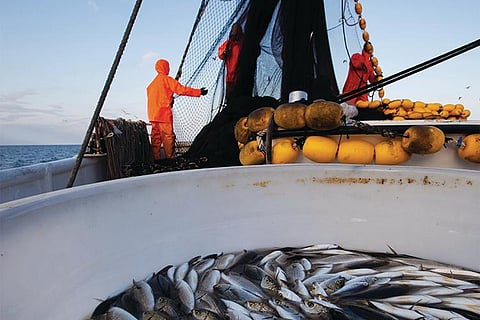NOAA Fisheries
NOAA Fisheries unveils action plan for seafood import monitoring
NOAA Fisheries has announced an ambitious action plan to enhance the U.S. Seafood Import Monitoring Program (SIMP), aiming to combat illegal, unreported, and unregulated (IUU) fishing while improving seafood traceability and supply chain integrity.
The plan follows a comprehensive review launched in 2023, incorporating feedback from over 7,000 stakeholders worldwide.
“Our goals are to strengthen the U.S. domestic seafood industry by promoting fair trade practices in the global seafood supply chain while building capacity to maintain and grow the Program," NOAA Administrator and Undersecretary of Commerce for Oceans and Atmosphere, Dr. Richard Spinrad, said in a news announcement.
"Once implemented, the changes to our Seafood Import Monitoring Program that we are announcing will fundamentally improve our ability to prevent and deter IUU fish and fish products from entering our market and will contribute to U.S. government efforts to address labor abuses in the seafood supply chain," Spinrad added.
“NOAA Fisheries remains committed to implementing an impactful tool in the fight against illegal, unreported, and unregulated fishing while upholding the integrity of U.S. seafood imports,” said Alexa Cole, Director of the Office of International Affairs, Trade, and Commerce at NOAA Fisheries.
Parts of the action plan will be implemented now, although other aspects are likely to take longer, NOAA said, however throughout this process, the existing SIMP requirements and reporting obligations will remain in effect.
Action on traceability, IUU fishing, forced labour, and fair trade
The NOAA action plan focuses on enhancing seafood traceability to combat illegal, unreported, and unregulated (IUU) fishing, improving data collection to address forced labour in global seafood supply chains, and promoting fair trade practices by simplifying compliance and modernizing reporting systems.
It also aims to expand traceability requirements, enable pre-entry screening of imports, and develop a pilot government-to-government data-sharing program. Internally, the plan seeks to strengthen NOAA’s capacity by stabilizing and expanding its program team and upgrading data systems for better risk detection and analysis.
"We are prioritizing the implementation of these changes, with plans to issue a proposed rule, with an opportunity for public comment. A final rule will follow thereafter, with internal improvements rolling out as resources allow," NOAA stated.


